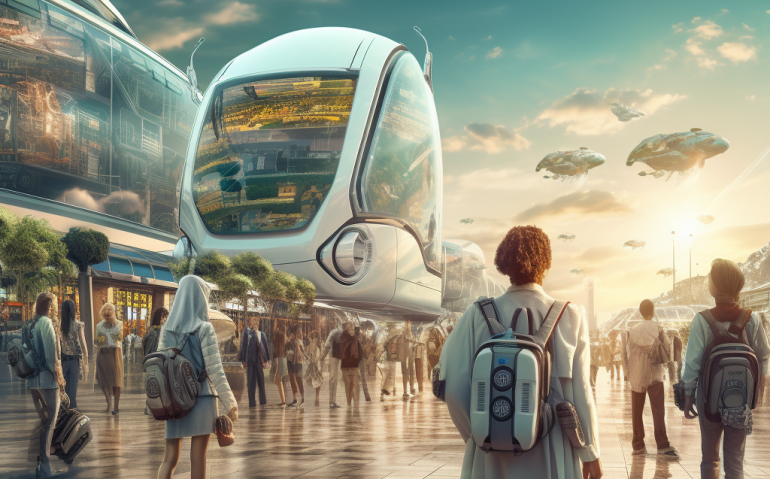- AI-influenced revenue share of travel companies worldwide currently stands at 21%, projected to increase further.
- Approximately 30% of service professionals in the travel and hospitality sector utilize AI.
- A survey revealed that two-thirds of surveyed adults in the United States believed a travel text entirely generated by GPT-4 was human-made or human-edited. This highlights the impressive capabilities of AI in generating human-like content.
Artificial Intelligence (AI) has become a buzzword in various industries, and travel and tourism are no exception. With the recent advancements in AI technology, the sector has started embracing AI tools, opening up a realm of possibilities for both businesses and travelers. The impact of AI on the travel and tourism industry is vast, ranging from chatbots assisting travelers to AI-generated texts improving back-end operations. This article delves into the current state of AI adoption in the travel sector, identifies key players utilizing Generative AI tools, and explores how travelers expect to leverage AI to enhance their experiences.
The Readiness of the Travel and Tourism Sector for AI
While the travel and tourism sector initially lagged behind other industries in embracing AI, recent developments suggest a growing interest in integrating AI tools. A survey conducted in 2022 revealed that the adoption of AI in travel and hospitality was lower compared to sectors like consumer goods, media, and financial services. However, with the introduction of AI tools by prominent players in the market, the relevance of AI in travel and tourism is rapidly increasing. A global study projected that AI-driven insights would contribute to nearly one-third of travel companies’ total revenue by 2024. This indicates a significant shift towards embracing AI technologies.
Leading Travel and Tourism Companies Embracing Generative AI Tools
The implementation of Generative AI tools by major travel and tourism companies is a testament to the potential impact of AI on the industry. Singapore-based online travel agency (OTA) Trip.com launched TripGen in February 2023, a chatbot powered by OpenAI. TripGen provides personalized recommendations on flights, hotels, and other travel services through Trip.com’s mobile app. Kayak and Expedia, both owned by Booking Holdings, introduced plugins powered by ChatGPT, while eDreams ODIGEO initiated a partnership with Google’s Bard. These developments highlight the growing interest in utilizing Generative AI to revolutionize trip planning, a crucial aspect of travel that can be greatly influenced by this technology. The rapid adoption of AI tools by these key players demonstrates the industry’s recognition of AI’s potential to enhance the travel experience.
Travelers’ Expectations of AI in Travel
From a traveler’s perspective, AI is expected to play a pivotal role in various aspects of travel. A report on the future of travel in 2023 highlighted that accommodation bookings ranked first among the expected uses of AI in travel planning by 2033. This was followed by international and local transport arrangements. Additionally, four in ten adults in the United States expressed interest in AI-powered flight and hotel recommendations, as well as AI-generated menu recommendations at restaurants. The convenience and personalization offered by AI-driven solutions have captured the attention of travelers, signaling a demand for AI-powered assistance throughout their journeys. The high level of interest among travelers indicates that AI has the potential to significantly transform and improve the travel experience.
According to a comprehensive global survey conducted among travel companies with revenues exceeding one billion U.S. dollars, the influence of Artificial Intelligence (AI) on their revenue has been steadily increasing. The study revealed that AI accounted for approximately 21 percent of these companies’ revenue in the travel market in 2021. This marks a significant rise from the nine percent reported in 2018, indicating the growing impact of AI in the industry. Furthermore, projections suggest that the share of AI-influenced revenue in the travel sector is expected to reach 32 percent by 2024, further highlighting the rapid growth and significance of AI in shaping the future of travel.
Artificial Intelligence is rapidly transforming the travel and tourism industry, empowering businesses to enhance their operations and providing travelers with personalized and efficient experiences. The adoption of Generative AI tools by major travel companies demonstrates the increasing relevance of AI in trip planning and customer support. As AI technology continues to advance, the travel and tourism sector is poised to witness further innovations that revolutionize the way we explore the world, making travel







